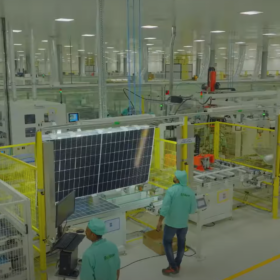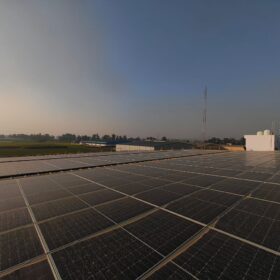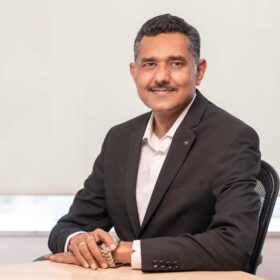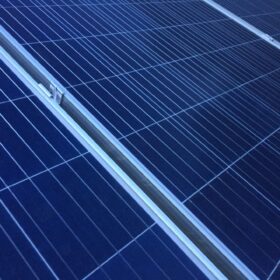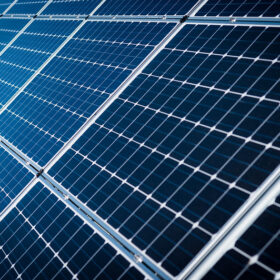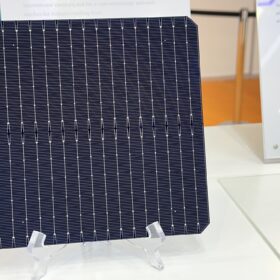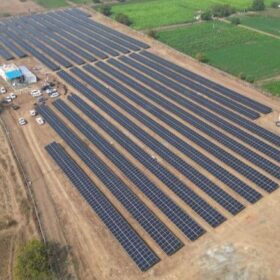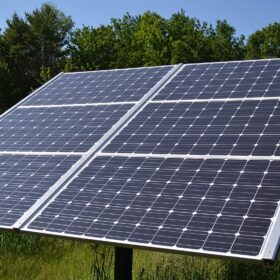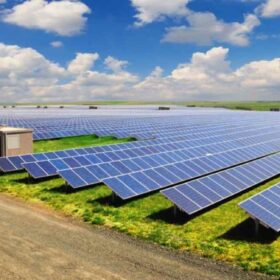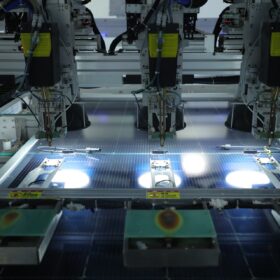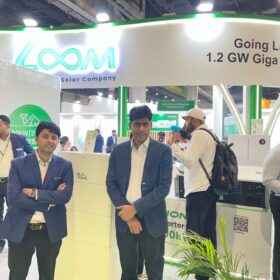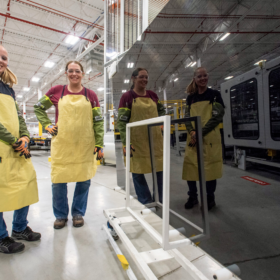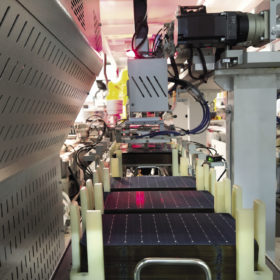Batteries at the heart of India’s energy future: Building a flexible and democratic power system
As India races toward its goal of 500 GW non-fossil fuel capacity by 2030, having already reached 217.62 GW as of January 2025, integrating variable renewable energy sources requires flexible storage solutions that can bridge generation-demand gaps while maintaining grid reliability. The dramatic cost declines, technological innovations, and supportive policy frameworks have created a perfect storm for Battery Energy Storage Systems (BESS) adoption, transforming what was once a nascent technology into a commercially viable solution driving India’s clean energy future and enabling a more flexible, resilient, and decentralized power system.
ReNew reduces solar module, cell prices following GST cut
ReNew Energy Global Plc (ReNew) has announced price reduction in its solar modules and cells, following the Government of India’s landmark decision to lower goods and services tax (GST) on renewable energy equipment from 12% to 5%, effective September 22, 2025.
Saatvik Green secures LoA from MSEDCL for 1,500 solar water pumps in Maharashtra
Saatvik Green Energy Ltd has received Letter of Award (LoA) from Maharashtra State Electricity Distribution Co. Ltd (MSEDCL) for installation of 1,500 solar water pumping systems under the Magel Tyala Saur Krishi Pump Yojana (component B of PM Kusum Scheme).
Redefining Smart Cities: The transformative role of solar energy in urban grid evolution
The economics of solar have evolved significantly. With declining panel costs and robust government support—through schemes like the PM Surya Ghar Muft Bijli Yojana and PM-KUSUM—solar is now a financially viable solution for municipalities and citizens alike.
Distributed solar poised to shape the next decade of India’s energy transition through residential, C&I rooftops, and hybrid microgrids
India has set an ambitious target of 280 GW of solar capacity by 2030, and of this, at least 40-45 GW is expected to come from distributed solar — a conservative estimate, considering the pace at which the ecosystem is maturing.
The role of solar in India’s 500 GW renewable energy target by 2030
As of Feb. 28, 2025, India’s installed solar capacity stands at approximately 102.57 GW, contributing significantly to its renewable energy mix. To meet the 500 GW target, solar energy will need to contribute nearly 300 GW.
Solar cells using imported blue wafers will not qualify as domestically manufactured
India’s Ministry of New and Renewable Energy (MNRE) has clarified that solar cells manufactured using imported diffused silicon wafer (generally called ‘blue wafer’) shall not qualify for MNRE schemes and programmes that mandate use of domestically manufactured solar PV cells.
The ease of financing in the solar sector
Innovative models that provide pay-as-you-go solar systems, peer-to-peer energy trading, and crowdfunding platforms could expand access to renewable energy for underserved communities.
Servotech secures 1,094 solar pumps order from UPNEDA
Servotech has won the order for supply, installation and commissioning of 1,094 grid-connected agriculture pumps along with solar power plants.
SJVN Green Energy tenders 1,352 MW solar under PM KUSUM Scheme
SJVN Green Energy Ltd (SGEL) is accepting bids to develop 1,352 MW of grid-connected, ground-mounted PV projects under Component C of the PM-KUSUM Scheme.

